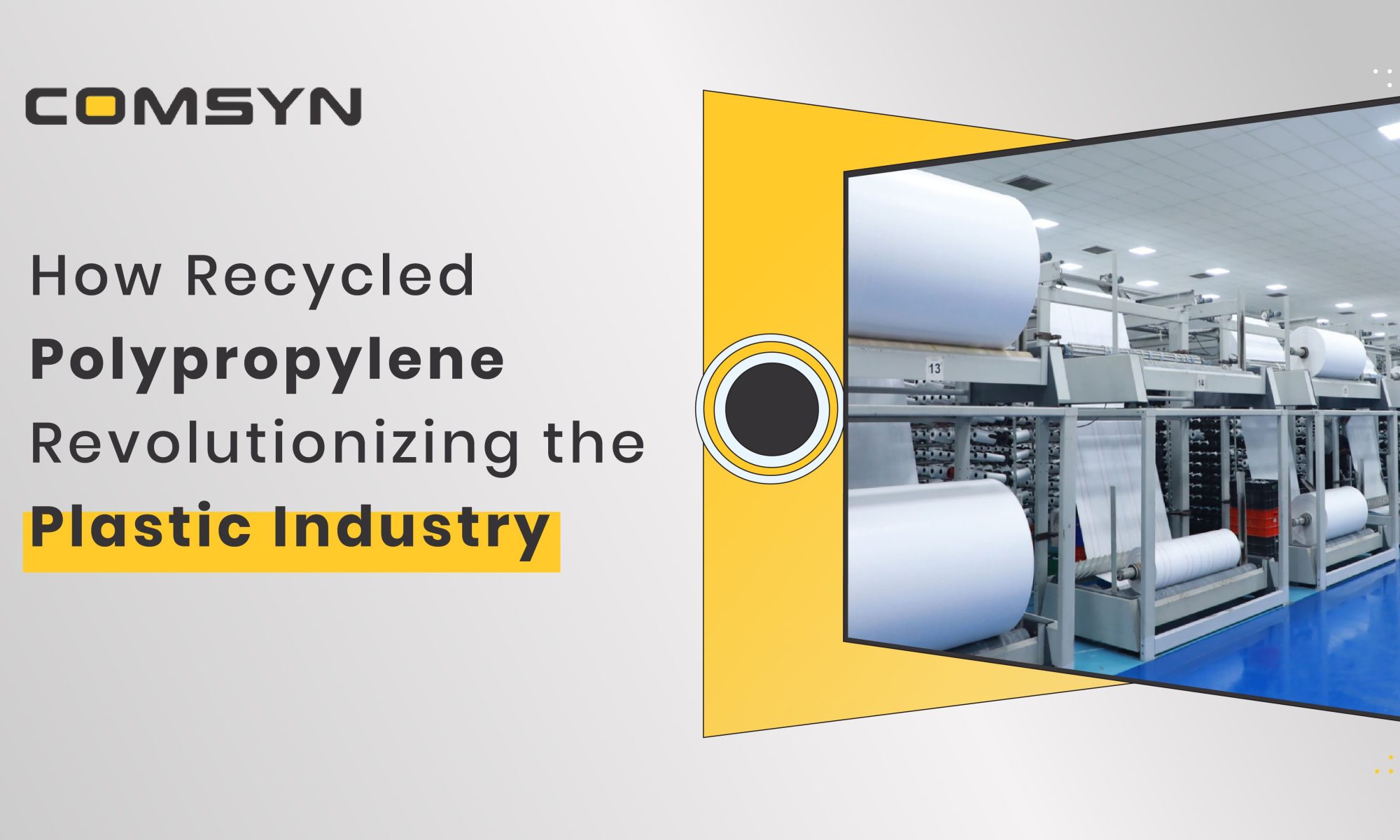Companies such as Comsyn lead the way in offering sustainable PP alternatives, allowing various industries to produce more eco-friendly options without sacrificing quality. Polypropylene is a thermoplastic polymer with highly variable properties. It is strong, flexible, benign to chemicals, and inexpensive, and it is used in several industries. These may include food containers, bottle caps, pharmaceutical devices, and cars. While its usefulness is unquestionable, large-scale applications of polypropylene have only contributed to the ever-increasing problem of plastic waste. For this reason, recycling polypropylene is important for ameliorating environmental harm, switching to a circular economy where less is wasted, and maximizing the reused materials. Common recyclable polypropylene products include food containers, packaging films, bottle caps, and medical equipment. However, contamination and improper disposal can sometimes hinder the recycling process. A common question that many people ask is whether or not polypropylene can be recycled. The answer is an emphatic yes! Polypropylene is indeed one of the most recyclable plastics; the only requirements are to be collected correctly, sorted out from other plastics, and processed. The recycling processes for polypropylene are a series that follows a specific procedure: The matter of prime concern concerning plastic recycling is whether the material maintains its property with applications through several recycling cycles. How many times can we recycle polypropylene? Studies suggest that polypropylene may be repeatedly recycled three to four times in most cases before mechanical performance is significantly impaired. One claim made is that plastic may become less strong, flexible, and useful in high-performance applications with each successive recycling process. To do so, manufacturers typically blend virgin PP or additive-renovated PP with recycled polypropylene. Innovations in polymer technology are helping ensure that polypropylene remains a sustainable solution for many industry segments by directly improving the product’s recyclability. Environmental benefits when replacing virgin polypropylene with recycled material apply to sustainability as follows: While they are all true, however, the challenges connected with polypropylene recycling are: Contamination-Staining with various substances associated with food residues, dyes, and additives might hinder the efficient recycling of polyolefin. To counter such challenges, industries should invest massively in better recycling technologies and adopt sustainable waste management techniques. Recycled polypropylene has an immense role to play in the plastic industry as it minimizes waste, conserves resources, and lowers environmental impact. Continued improvement of efficiency and performance of polypropylene recycling via technology is expected to be a major step towards sustainable futures. Comsyn offers quality, innovative, eco-friendly alternatives for companies needing high-quality polypropylene solutions endorsed for sustainability that don’t compromise on performance. Contact Comsyn today for insight into how recycled polypropylene can enhance your operations while supporting a sustainable future.How is Recycled Polypropylene Revolutionizing the Plastic Industry?

The challenges of plastic waste are conducive to many interventions revolving around the recycling paradigm for the plastic sector. With the change of tactics to sustainability, recycled polypropylene has emerged in the limelight as a game-changer. Polypropylene, one of the most commonly produced plastics with extensive usage in packaging, textiles, and vehicle parts, is currently being recycled productively to intervene in reducing plastic waste and minimizing an environmental footprint. Understanding Polypropylene: The Basics
Recyclability of Polypropylene: Can It Be Recycled?
How Many Times Can Polypropylene Be Recycled?
Benefits of Recycling Polypropylene for the Environment
Challenges in Polypropylene Recycling
Conclusion
FAQ
Recycled polypropylene is repurposed PP plastic that reduces waste, conserves resources, and lowers environmental impact.
Yes, polypropylene can be recycled through collection, sorting, cleaning, and reprocessing into new products.
Polypropylene can typically be recycled three to four times before its quality degrades.
Common recyclable polypropylene products include food containers, bottle caps, packaging films, and automotive parts.
It reduces plastic waste, conserves raw materials, lowers carbon emissions, and supports a circular economy.
- About Us
- Products
- Markets Served
-
- Investor Relation
- Board Of Directors
- Committees Of Board
- Corporate Governance
- Financials
- Annual Report
- Key Managerial Positions
- Shareholding Pattern
- Notices
- Policies Programme
- Announcements
- Statement of Investor Complaints
- Unpaid & Unclaimed Dividend
- Prospectus
- Investors Contact
- Subsidiary Financials
- IEPF
- Preferential Issue – 2024
- MOA & AOA
- Integrated Filing
- Sustainability
- Contact Us
- TechTex
- Brochure

